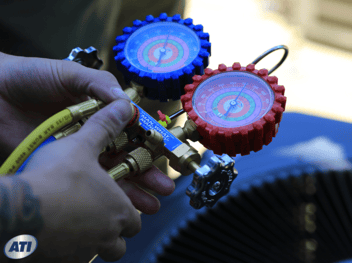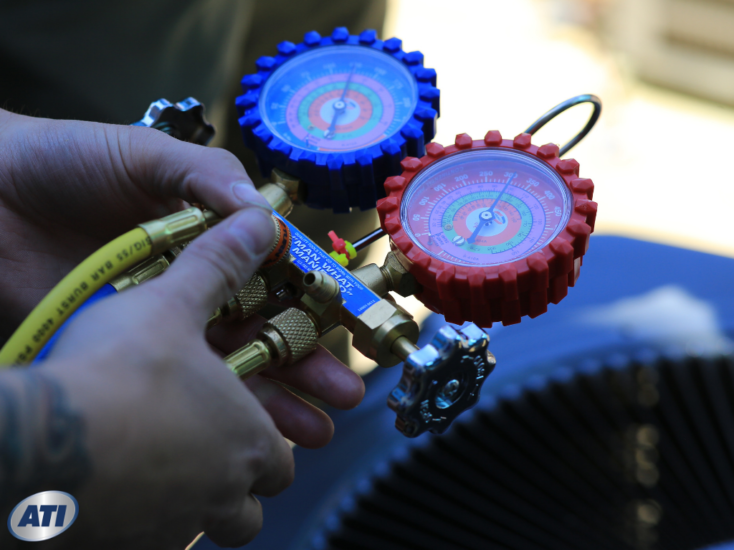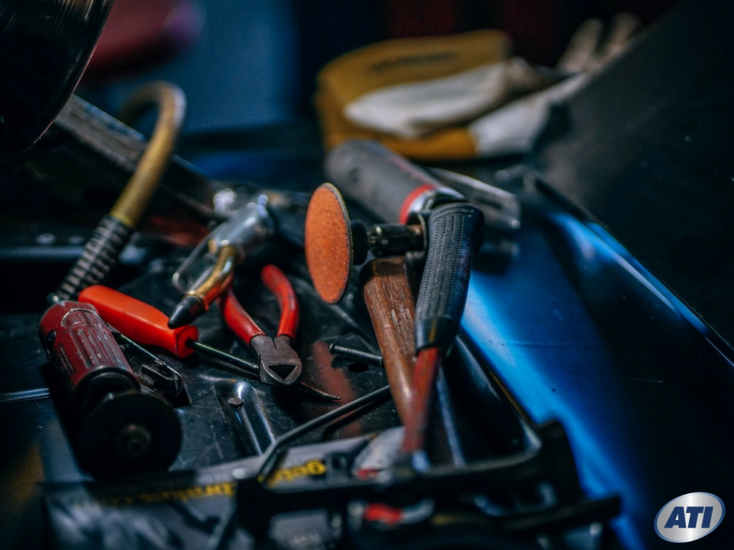Heavy Vehicle Mechanic Training in Norfolk, VA: What Do I Need to Know?

The numbers don’t lie. In 2016, which is the last year information is available, the country’s roads were full of heavy vehicles. In fact, there were more than 8.7 million single-unit trucks, 2.7 million tractor-trailers, and nearly 1 million buses, according to data compiled by the U.S. Department of Transportation.
And these vehicles did a lot of the country’s heavy lifting, carrying passengers and cargo a combined 300-plus billion miles.
They transported people to work, products to market, and raw materials to manufacturers across the country. And many of the heavy vehicles never would have made it to their destinations if not for the work of heavy vehicle mechanics.
They’re the highly trained professional mechanics who work behind the scenes to keep the big trucks and buses barreling down the road. It’s an important job–one that affects every single industry. That could explain why heavy vehicle and mobile equipment service technicians are in demand.
So what does it take to become a heavy vehicle mechanic? Here’s a look at five things you need to know:
What you’ll do
Heavy vehicle mechanics are responsible for inspecting, maintaining, and repairing vehicles that are used in a variety of industries. This includes vehicles used on constructions sites, farms that are large and small, the nation’s railways, and other industries that require a lot of diesel-fed horsepower to get the job done.
Day-to-day responsibilities include performing regularly scheduled maintenance, diagnosing problems, and repairing equipment to keep it running properly.
You might work on engines, hydraulic components, and any other parts and pieces of equipment that are critical to keeping heavy vehicles on the roads and on the job sites.
Where you’ll work
In short, you could work anywhere in the country.
Every major metropolitan area offers bus service, and many offer rail transit. They’re in need of heavy vehicle mechanics. According to the American Trucking Associations, there are more than 700,000 private trucking companies spread out across the country, and they all need mechanics.
And think about all of the construction companies, government agencies, and railroad companies that need people to keep their heavy vehicles running. You could work anywhere.
Most heavy vehicle mechanics work on farm and garden machinery, according to the U.S. Bureau of Labor Statistics. Next is transportation, followed by the government, construction, and rental companies.
What you need to know
Today’s heavy vehicles are incredibly complex, relying more than ever on technology and electronic components than ever before. You’ll need to know a lot about those two subjects.
Of course, they rely on diesel engines and all of their components. So you’ll need to know how they work as well. And then there’s the customer service, communications, occupational health, and management parts of the job.
You’ll need to know about all of that, too. There’s a lot that goes into being a heavy equipment mechanic. But the good news is that training is available.
How long training takes
With such a robust list of topics to cover–from the fundamentals of technology to heavy vehicle electronics to diesel fuel systems to accounting–you might think that it would take you a long time to work your way through the program.
In reality, there are high-quality heavy vehicle mechanic programs that can teach you everything you need to know in as little as 21 months. These programs require you to attend class four days a week, and schedules tend to vary to help those with families or prior work commitments.
Where to study
Some say that the United States runs on diesel. Others say that it’s good, old-fashioned hard work that keeps the country humming. In reality, it’s a combination of the two–thanks to heavy vehicle mechanics working behind the scenes.
If you are interested in learning more about this growing and important career, connect with the Advanced Technology Institute today. Ask about how you can earn your Associate of Occupational Science Degree in Diesel Technology with Service Management.

Industry Knowledge
Welcome to the Advanced Technology Institute's Blog, your resource for industry insights and discussions on technologies shaping the future of automotive, heavy vehicle, hvac, welding, and other related career paths.
Explore how ATI's curriculum and hands-on learning opportunities can propel your career in the tech-driven world.





